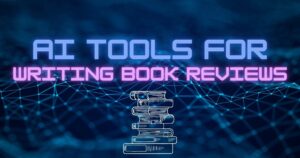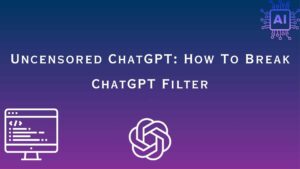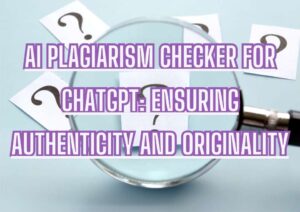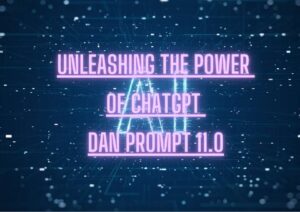ChatGPT for Writing Book Reviews
Writing a book review can be a rewarding experience, both for you as a reader and for potential readers interested in your insights.
However, articulating your thoughts, summarizing the book’s plot, and conveying your opinions coherently can be a challenging task. This is where AI tools like ChatGPT can lend a helping hand.
As you are well aware that ChatGPT 3.5 does not have access to Realtime data and is trained on data before September 2021 so if you are going to review a latest book then you would require access to ChatGPT 4.
In this guide, we will explore how to use ChatGPT for writing book reviews and summaries that stand out.
Note: It is suggested to use ChatGPT ethically and give attribution whenever ChatGPT is used to write a book review.
ChatGPT Prompts For Book Reviews
An ideal book review typically consists of several key components, which help provide a comprehensive and insightful assessment of the book. Here are the parts of an ideal book review
An ideal book review is balanced, well-structured, and thoughtfully written. It provides readers with a clear understanding of the book’s content and the reviewer’s personal perspective, helping them make an informed decision about whether to read the book themselves.
- Introduction
- Summary
- Analysis
- Criticisms and Praise
- Personal Response
- Recommendation
Using a single generic prompt like “Give me a book review for __” will not give you a satisfactory result. However, If you use prompts sequentially you can come up with a great book review using ChatGPT.
We will go step by step into how we can use ChatGPT to write a book review in all of these phases.
Related: Check Out AI Tools for Writing Book Reviews
Introduction
ChatGPT can assist you in crafting a compelling introduction for your book review.
Title, Author, and Publication Date: ChatGPT can generate an introduction that includes the book’s title, author, and publication date.
Genre and Setting: ChatGPT can help you provide a brief overview of the book’s genre, setting, and other relevant background information, ensuring your readers have context.
Hook or Thesis Statement: ChatGPT can suggest engaging hooks or thesis statements that capture the reader’s attention and give a preview of your overall evaluation.
“I’ve just finished reading ‘To Kill a Mockingbird’ by Harper Lee, and I’m writing a book review. Can you help me create an engaging introduction? Please include the title, author, and publication date. Additionally, provide some context about the genre and setting, and craft a hook or thesis statement that draws readers in and hints at the essence of my review.”

Summary
ChatGPT can assist you in writing a concise and engaging summary of the book’s plot, main characters, and central themes while avoiding major spoilers.
Plot Summary: ChatGPT can provide a brief but comprehensive overview of the book’s plot, covering the major events and turning points without revealing crucial spoilers.
Character Overview: ChatGPT can help you introduce the main characters and their roles in the story, offering insights into their development and motivations.
Themes and Central Ideas: ChatGPT can outline the central themes and ideas explored in the book, giving readers a sense of the deeper meaning and messages conveyed.
“I’m writing a book review for ‘To Kill a Mockingbird’ by Harper Lee, and I need assistance summarizing the book’s plot, main characters, and central themes without giving away major spoilers. Can you provide a concise summary of the plot, introduce the key characters, and outline the central themes explored in the book?”
Analysis
ChatGPT can be a valuable resource for crafting a thoughtful analysis of a book’s strengths and weaknesses, including elements like writing style, character development, plot structure, thematic elements, and the book’s impact.
Strengths and Weaknesses: ChatGPT can help you identify and articulate the book’s strengths and weaknesses based on your assessment.
Writing Style: ChatGPT can offer insights into the author’s writing style, including its effectiveness and any unique qualities.
Character Development: ChatGPT can assist in discussing how well the characters are developed, their motivations, and their impact on the story.
Plot Structure: ChatGPT can help you analyze the book’s plot structure, pacing, and how effectively it engages the reader.
Thematic Elements: ChatGPT can guide you in exploring the book’s thematic elements, underlying messages, and the depth of the themes presented.
Likable and Dislikable Aspects: ChatGPT can assist in explaining what you liked or disliked about the book, offering specific examples to support your points.
Author and Genre Comparison: ChatGPT can help you consider how the book compares to the author’s other works or similar books within the same genre.
Impact and Relevance: ChatGPT can provide insights into the book’s impact on you as a reader and its broader implications or relevance.
“I’m working on a book review for ‘To Kill a Mockingbird’ by Harper Lee, and I need assistance with the analysis section. Can you help me evaluate the book’s strengths and weaknesses, discuss the writing style, character development, plot structure, and thematic elements? Please also guide me in explaining what I liked and disliked, comparing it to other works by the author or within the same genre, and exploring the book’s impact on readers and its broader relevance.”
Criticisms and Praise
ChatGPT can help you effectively express both your criticisms and praise for a book by providing specific examples and reasoning.
Though it is highly recommended to use the output from ChatGPT as the guideline and come up with your personal response.
What Worked Well: ChatGPT can help you identify and articulate what aspects of the book worked well and why you found them effective. This might include well-drawn characters, engaging plot twists, or beautiful prose.
Shortcomings: ChatGPT can guide you in identifying areas where the book fell short or could have been improved. It can help you provide constructive feedback, such as pointing out pacing issues or underdeveloped characters.
Specific Examples: ChatGPT can assist in using specific examples from the text to illustrate your points. It can generate quotes or passages from the book that support your praise or criticism.
“I’m writing a book review for ‘To Kill a Mockingbird’ by Harper Lee, and I need help discussing what worked well in the book and where it had shortcomings. Can you assist me in identifying and explaining the strong points of the book, using specific examples from the text to illustrate? Additionally, please guide me in pointing out areas where the book could have been improved, providing constructive feedback with specific references from the book.”
Personal Response
ChatGPT can assist you in expressing your personal response to a book, discussing both your emotional and intellectual reactions and how the book resonated with you.
It better to use ChatGPT output as a guideline and come up with your own unique perspective in this part of the book review.
Emotional and Intellectual Reactions: ChatGPT can help you articulate your emotional and intellectual responses to the book. It can suggest words and phrases to convey your feelings and thoughts effectively.
Feelings and Resonance: ChatGPT can assist in discussing how the book made you feel, whether it elicited strong emotions, and whether it resonated with you on a personal level. It can help you express the reasons for this resonance.
“I’ve just finished reading ‘To Kill a Mockingbird’ by Harper Lee, and I’m working on my book review. Can you help me share my personal response to the book? Please guide me in discussing both my emotional and intellectual reactions, how the book made me feel, and whether it resonated with me on a personal level. Feel free to suggest words or phrases to help convey my thoughts and emotions effectively.”
Recommendation
ChatGPT can assist you in writing a thoughtful recommendation for the book, suggesting whether it should be recommended to a specific audience and providing reasons.
ChatGPT can provide readers with a well-informed recommendation, helping them understand the book’s suitability for different audiences and any considerations they should be aware of before reading.
Audience Recommendation: ChatGPT can help you determine if you should recommend the book to a specific audience. It can suggest whether the book is suitable for certain age groups or interests.
Reasons for Recommendation: ChatGPT can guide you in explaining who might enjoy the book and why. It can provide reasons related to the book’s themes, style, or other factors.
Trigger Warnings and Content Advisories: If applicable, ChatGPT can help you mention any potential trigger warnings or content advisories, ensuring that readers are informed about sensitive content.
“I’m concluding my book review for ‘To Kill a Mockingbird’ by Harper Lee, and I need assistance with the recommendation section. Can you help me decide whether to recommend the book to a specific audience? If so, please suggest who might enjoy the book and provide reasons. Additionally, if there are any potential trigger warnings or content advisories, please guide me in mentioning them for reader awareness.”
Read This

9 AI tools for writing emails (Free & Paid) To Be More Productive
Ai tools for writing emails Writing and replying to email can be a real hassle and to be honest one of the…
Read This

7 Superb AI Tools To Write Book Reviews (Free & Paid)
AI Tools To Write Book Reviews With advanced AI Language Models People are exploring new creative horizons. AI tools are being used…





